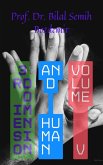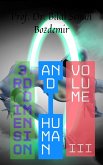Furthermore, cultural dimensions cannot be overlooked in discussions around mind-body interaction. Cultural beliefs and practices distinctly shape individuals' perceptions of health, illness, and healing, influencing the therapeutic benefits derived from interventions. Cross-cultural studies have unveiled variations in placebo responsiveness that correlate with underlying cultural values, accentuating the necessity for cultural competence in clinical practice.
In conclusion, the role of mind-body interaction in therapeutic outcomes is multifaceted and profoundly influential. Ongoing research into the mechanisms of psychosomatic relationships underscores the need for a paradigm shift in healthcare-a transition towards models that view the patient holistically, integrating psychological factors as essential components of medical treatment. Moving forward, harnessing the power of the mind to facilitate healing presents a promising frontier in enhancing therapeutic efficacy and improving overall health outcomes.
Dieser Download kann aus rechtlichen Gründen nur mit Rechnungsadresse in A, B, BG, CY, CZ, D, DK, EW, E, FIN, F, GR, H, IRL, I, LT, L, LR, M, NL, PL, P, R, S, SLO, SK ausgeliefert werden.









